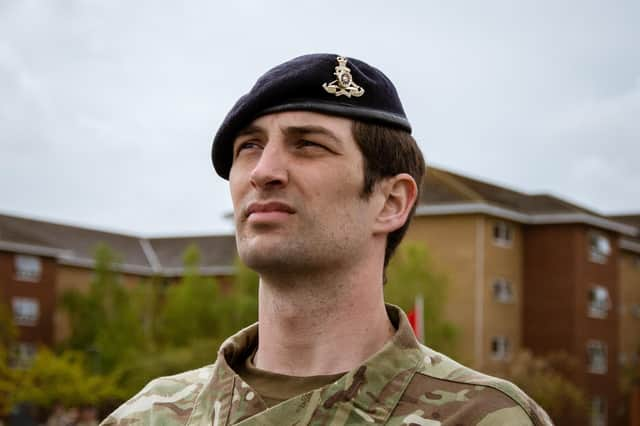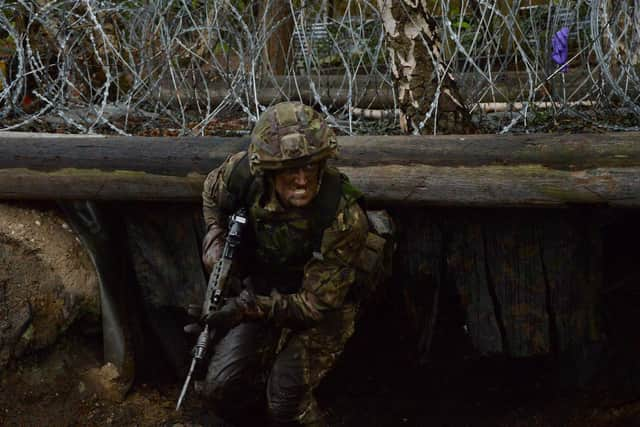A reporter's journey from civilian to reservist soldier during the coronavirus pandemic


After about three years of toying with the idea, I finally took the plunge and decided to apply to become a reservist at the end of the first lockdown, last year.
Having absolutely zero military experience, it was a daunting prospect.
Advertisement
Hide AdAdvertisement
Hide AdMy first real taste was my initial seven-day training course at the army reserve base in Grantham near Nottingham.


It was February and freezing; the course the week before had to contend with blizzards!
But it wasn’t the heat – or lack of it – that was what I needed to acclimatise to: it was the 5am starts and strict military routine.
And the pace was relentless. The course, known as Phase One Alpha, focuses on skill at arms – how to handle a rifle safely, as well stripping and maintaining a weapon and the fieldcraft skills needed to survive in the wild.
Advertisement
Hide AdAdvertisement
Hide AdIt also works to test fitness and basics of drill – marching, saluting and everything in between.
Where as the regular recruits have about four weeks to learn this – reservist training is compressed to just seven days, so there is a lot to learn and the days are long.
And I’d by lying if I didn’t feel like I was just about keeping my head above water. But I got through it.
The second phase of training was even more demanding – a 16-day ‘Bravo’ course at Pirbright.
Advertisement
Hide AdAdvertisement
Hide AdDue to Covid, in Grantham every recruit had their own rooms.
But in Pirbright we shared blocks with about 10 people per room acting as a ‘family bubble’ throughout training.
It was a fantastic experience. I found on the first night everyone in my room had bonded and the banter was in full flow.
And it was this camaraderie that helped us all to push through the course, which included brutal weighted marches and sleep deprivation during a three-night, four-day exercise in the field as well as a physically exhausting day of bayonet training.
Advertisement
Hide AdAdvertisement
Hide AdThe course was also the first time recruits had the opportunity to carry out live shoots on ranges up to 200m, which was a thrilling experience.
It all culminated in a pass out parade that was streamed virtually to family and friends, in what was one of the proudest moments of my life.
A message from the Editor, Mark Waldron
You can subscribe here for unlimited access to our online coverage, including Pompey, with 70 per cent fewer adverts for less than 20p a day.
Comment Guidelines
National World encourages reader discussion on our stories. User feedback, insights and back-and-forth exchanges add a rich layer of context to reporting. Please review our Community Guidelines before commenting.